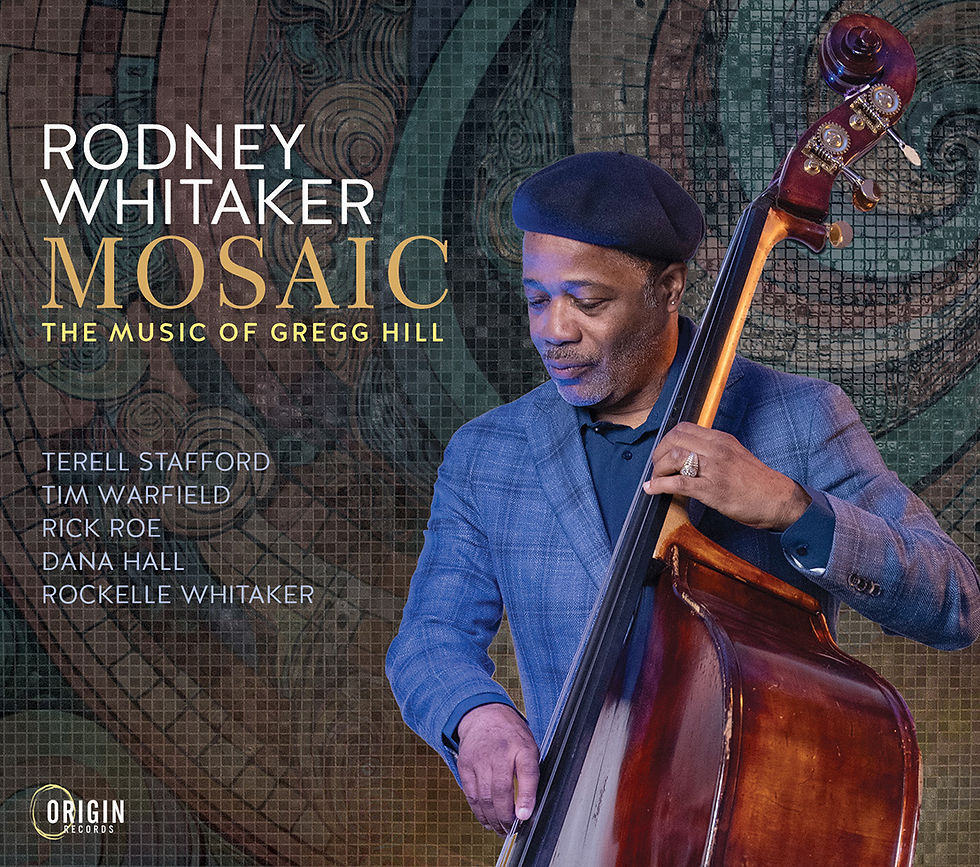
Paris Move Review by Thierry De Clemensat
USA correspondent – Paris-Move and ABS magazine
Editor in chief Bayou Blue Radio, Bayou Blue News
"Gregg Hill continues to inspire thousands of musicians, and this time, the illustrious Rodney Whitaker takes up the mantle, offering us an album of remarkable enthusiasm. Deeply connected to Origin Records—a label that has become something of a home for him—Whitaker’s impressive array of musical endeavors is too vast to fully explore here. For those yet unfamiliar with his work, it is worth noting that he was a member of the renowned Jazz at Lincoln Center Orchestra and has collaborated with an extraordinary roster of artists..."
..."Hill’s compositions undergo a metamorphosis in the hands of each artist who embraces them, as is the case here with this extraordinary bassist. Whitaker accomplishes the feat of adapting Hill’s work to his own artistic realm with a refinement that commands admiration. Recently inducted into the American Academy of Arts and Sciences in recognition of his prolific career as both a bassist and a distinguished jazz educator, Whitaker continues to affirm his role as a consummate interpreter of original music. This latest release, Mosaic, marks the fourth collaboration between Whitaker and Hill. With his dynamic ensemble—including vocalist Rockelle Whitaker, trumpeter Terell Stafford, saxophonist Tim Warfield, pianist Rick Roe, and drummer Dana Hall—Whitaker infuses Hill’s fresh and singular compositions with searing interplay, profound swing, masterful choices, and a forward-thinking spirit of adventure.
One cannot know every voice in jazz, and here I discovered the exquisite timbre of Rockelle Whitaker—a true jazz diva whose classical refinement erupts into an ultramodern approach to vocal phrasing, executed with understated elegance. A delight for all lovers of fine voices. Throughout this album, Rodney Whitaker once again demonstrates his impeccable command of musical arrangements. Each piece is masterfully highlighted, with an astute and intelligent handling of the instrumentation, subtly delivering a work that proves to be even more intellectually profound than Hill’s original intent.
Yet, beyond the beauty of its arrangements, this album offers something even more compelling—the sheer pleasure of hearing a bassist who so clearly delights in drawing the most perfect tones from his instrument. It is this very quality that has long made me admire Whitaker, and here, in the setting of Hill’s compositions, his artistry takes on an even greater depth. For the most significant jazz musicians, their craft is nothing less than a form of literary expression. This is precisely the case here, which is why we unreservedly place Mosaic atop our list of “Indispensables.”
Congratulations Randy Napoleon and Gregg Hill for their Album "The Door Is Open" for topping major charts in 2024!
- Dec 23, 2024
"Pianist Rick Roe is joined by drummer Nate Winn and bassist Robert Hurst for his 2024 release, Tribute: The Music of Gregg Hill, a heartfelt homage to Lansing-based composer Gregg Hill. The trio morphs twelve compelling tracks by Hill that explore bop jazz from swinging romps to caressing ballads and improvised lyricism.
Rick Roe and his trio celebrate the depth and variety of Gregg Hill’s compositions inTribute: The Music of Gregg Hill. The recording displays the trio's symbiotic rapport, showing that jazz is an evolving conversation among its musicians, jamming and riffing off-the-cuff, moving in a spontaneous fashion, and forming harmonious integration that constructs lyrical patterns."
From Jazz Love Blog, Dec 18, 2024
Album: Tribute: The Music of Gregg Hill
Artist: Rick Roe
Label: Cold Plunge Records
Websites: gregghilljazz.comroejazz.com





























